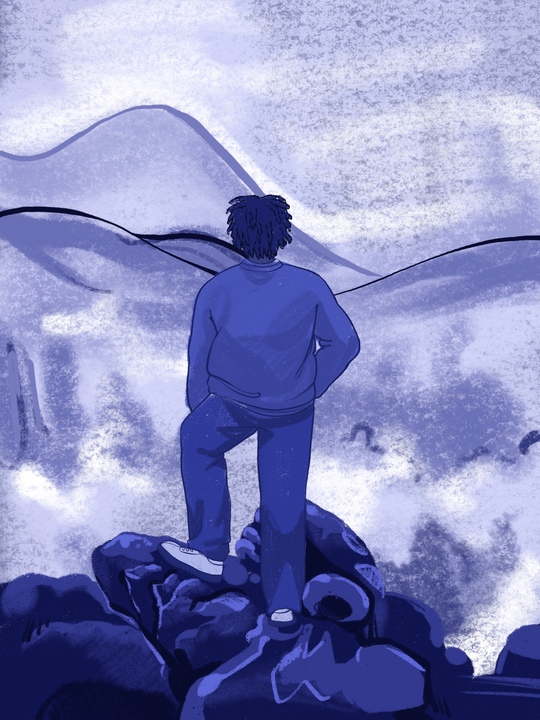Forum
Post-crashout clarity: moving past bonding over academic stress
 Dion Hines | Junior Forum Editor
Dion Hines | Junior Forum Editor Editor’s Note: This article contains discussion of suicidal ideation and suicidal thoughts. Resources and helplines can be found at the bottom of the piece.
I can’t really pinpoint the specific moment at which I started to crack; I came into the semester severely homesick — I had been dealing with bouts of derealization because of my new sense of displacement — so I guess you could say that I started on the wrong foot. The details are not too important, but just know that I wanted to die. Not in the way that we usually say we do, with the desire of a momentary escape, a minute of relief. I wanted to die in the way that I wanted to in high school, plagued with disillusionment, with the battle against a taunting ambivalence toward staying alive.
Of course, I wasn’t the only person who wanted to die in the traditional way, the permanent way. WashU — life, more like— is stressful, sometimes unnecessarily so. We as students recognize this fact, but I argue that we don’t properly approach it.
It doesn’t take much for a WashU student to tell you about their academic stresses. I learned this during my depressive episode, when I had become even more enthused to discuss mental health than I usually am. We discuss our “crashouts” with the matter-of-factness one has when describing the weather. It’s a common, candid conversation that we treat as a sort of bonding activity. It’s a way to feel less alone.
But, in this practice, we reach a sort of stillness. We talk about our procrastination, our pile of late assignments, our crashout in the restroom, our pile of upcoming assignments, our second crashout in the restroom, our 8:45 PM crashout, our crashout to bid the day farewell.
We use and popularize speech that centers our stresses and hardships, but we don’t go any further. We simply say “Real” and stomach — more like suppress — our grief. This habit is far from sustainable. It ignores our plights and sets the standard that we should muscle through our problems — which, in some cases, could be as severe as suicidal ideation.
It’s an age-old critique: “All you do is complain, but what are you going to do about it?” But we as students genuinely have to start asking ourselves about how we can make things easier for ourselves — and I mean beyond the typical breaking your work into chunks.
What puts you in the right headspace in the mornings? How can you turn this into a routine? What do you like to do in your spare time? How can you integrate more of this into your day? When can you squeeze in breaks and naps? Are you open to seeing a therapist? What the hell are you even grateful for?
It seems rudimentary to have to ponder over things like this, but it’s imperative that as students, we understand solutions as much as we understand our problems.
Resources for mental health support:
Helpful information on everything from campus emergency procedures, to student mental health support, to reporting incidents of sexual harassment, can be found at this site maintained by the Office of the Provost.
TimelyCare is a telehealth company available to all WashU students who pay the health and wellness fee to access it. TimelyCare provides a range of health services, including 24/7 mental health care.
WashU Cares is a referral-based, faculty-run organization that connects students with mental, academic, and social resources. Any person can file a report for any student they think may be in need of support.
Behavioral Health Response (BHR) is a Missouri organization that provides crisis support, telephone counseling and mental health resources. They can be reached 24/7 at 1-800-811-4760.
The National Suicide Prevention Lifeline provides free and confidential support 24/7. They can be reached at 1-800-273-8255 or online at suicidepreventionlifeline.org/chat/.
The Steve Fund, an organization dedicated to the mental health and emotional well-being of students of color, has a 24/7 crisis text line that can be reached by texting STEVE to 741741.
The Trevor Project, a suicide prevention organization for LGBTQIA+ individuals, can be reached by calling 1-866-488-7386, texting START to 678-678 or online at thetrevorproject.org/get-help-now/.
